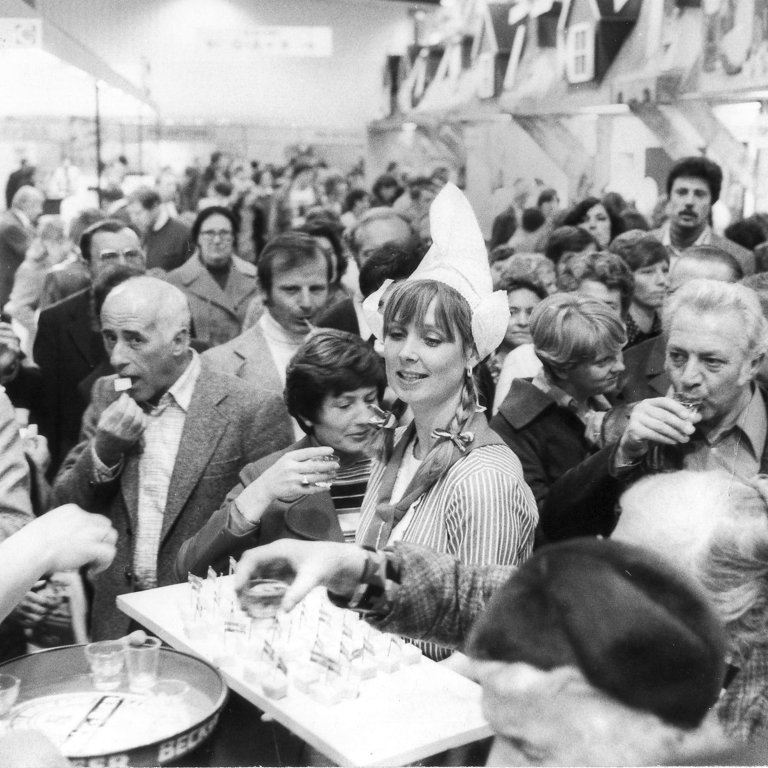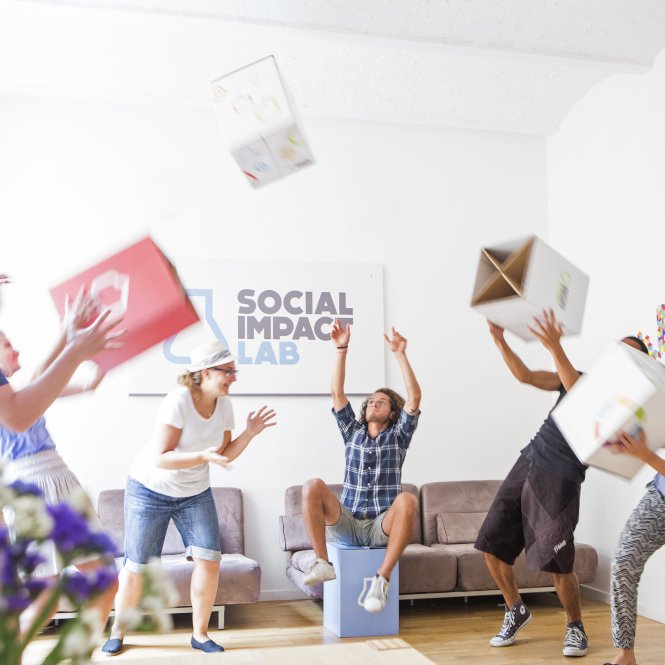

The Innovation Park at the ConSozial social fair offers social start-ups a platform to present themselves to the social sector and expand their network. In an interview, Norbert Kunz, founder of Social Impact, explains why trade fairs like ConSozial are so important.
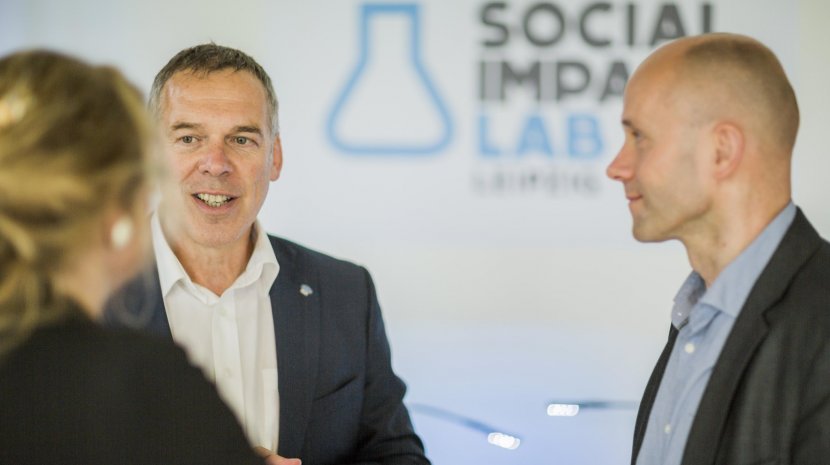
Norbert Kunz is the managing director of Social Impact and helps social start-ups to found sustainably successful companies.
Successful entrepreneurship, economic thinking and economic action are probably terms that do not immediately bring to mind social start-ups. Nevertheless, these are also aspects that apply to social enterprises and are important. Social start-ups are in vogue and combine economic efficiency with social added value. They are social problem solvers and visionaries of social progress and want to solve societal, ecological and social conflicts with their ideas in order to make the world a little bit better. Norbert Kunz is the founder of Social Impact. He has been working in the industry for over 30 years, helping start-ups turn their ideas into reality and create successful businesses. Social Impact sees itself as an agency for social innovation and has already accompanied quite a few social start-ups on their way. In this interview, Mr. Kunz provides insights into his work and the start-up scene.
Mr. Kunz, you are now celebrating over 30 years of success with Social Impact, have received numerous awards and operate eight Social Impact Labs throughout Germany. How did you get started and how can you support start-ups?
We started in 1994 with a qualification program for unemployed young people without vocational training. Only later did we start the business start-up programme and have supported over 3,000 start-up projects in recent years. Since 2011, we have now also been focusing on social start-ups and have already supported over 300 projects here. Social start-ups are companies that want to solve social or environmental problems. We help them develop social business models and disseminate their innovative approaches. In each Lab, calls for applications are made two to three times a year. From a number of 30-50 applications, 8-10 projects are then selected to pitch to an independent jury of social business experts. From these, four to five are then selected and included in our programme. This is very comprehensive: co-working, coaching, mentoring, workshops. We take a holistic approach here and want our start-ups to be successful in the long term. And we have a really good success rate here, I would say between 70 and 80 percent.
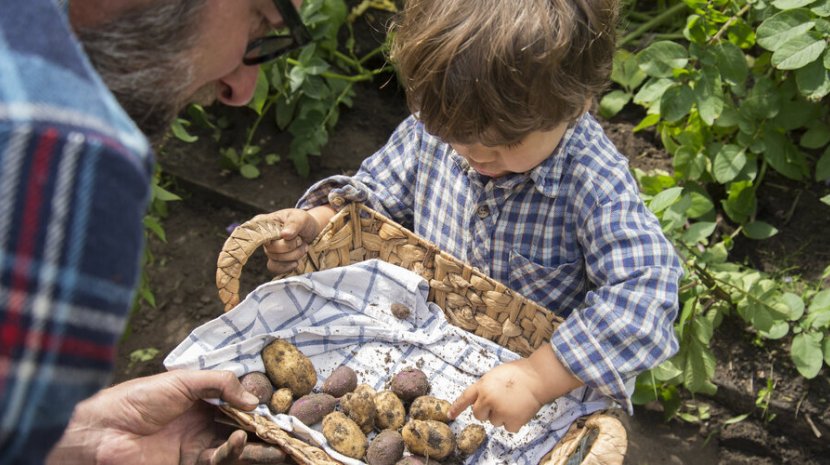
The start-up "GemüseAckerdemie" shows children where their food actually comes from and how, for example, potatoes and other vegetables are grown.
When you think back over the last few years, what was one of the most outstanding projects you can remember?
There are, of course, an infinite number of them. What comes to mind spontaneously: One of the first projects I was in charge of was at the end of the 90s. We supported a 19-year-old in setting up his own business in the IT sector. Five years later I met the young man again and he drove up in a red convertible and said to me: "You know, Norbert, my customers expect me to come with a car like that". That made me smile. Another great project that comes to mind is the GemüseAckerdemie. This is a school project where schoolgirls grow, market and sell their own vegetables. The program aims to create an understanding of food production and sustainable consumption among young people. I would also like to mention Auticon. The start-up employs autistic people with a special talent in the IT field. There, the employees are used for individual IT projects by companies. Unfortunately, people with disabilities often have a hard time in the job market.
How has the start-up scene changed in recent years?
I would say a lot has happened in the last seven to eight years. In the meantime, there were only a few founders who wanted to start their own business out of necessity, out of unemployment and a lack of prospects. This is now gaining in importance again when I think about refugees. That is why we have also established the first start-up incubator for refugees. With the Social Impact Labs, we are primarily addressing well-educated young people who want to make a difference, who have a social solution and want to share this innovation.
What do you think makes a good founder?
I always advise founders to listen and be open. You should accept criticism and advice and, above all, take it seriously. In addition, every social start-up should put its heart into its work, believe in innovation and not give up too quickly. Another important point is to win partners for your idea. Supporters and cooperation partners can be extremely helpful for young companies and bring a decisive step forward, both financially and in terms of experience and knowledge.
You are a cooperation partner of the Innovation Park. Here you are organising the Social Start-up Talk. What exactly do you have planned?
Our goal is of course to make the ideas of social start-ups known, because there is a clear gap here. Many social innovations are not known and it is also largely unknown that there is a start-up scene that develops solutions for social problems. At ConSozial, we want to give start-ups the opportunity to present themselves in pitches. But of course we also want to promote exchange and have included various formats such as speed networking in the programme. Another goal is of course to address the welfare associations and to initiate future cooperation and partnerships.
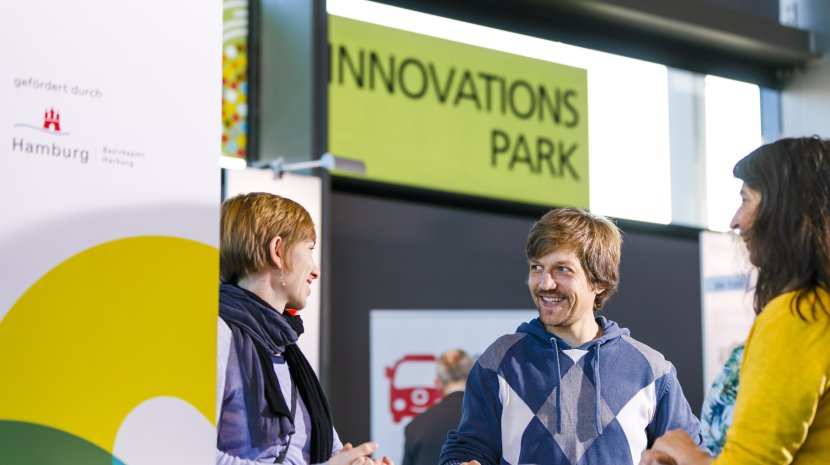
Why are trade fairs like ConSozial so important in your eyes?
That's obvious, isn't it? Start-ups have to go where the market or the marketplace is and therefore it is obvious that they also show their innovations at trade fairs like ConSozial. The entire social sector is represented there and all the important players such as welfare associations, social institutions, partner organizations and other social enterprises are gathered on site. Therefore, it is only recommendable to be present there as well.
Thank you very much for the interview.
ConSozial including the Innovation Park took place on 6 and 7 November 2019 at the Exhibition Centre Nuremberg.
Image credits:
Fotorecht: Social Impact



